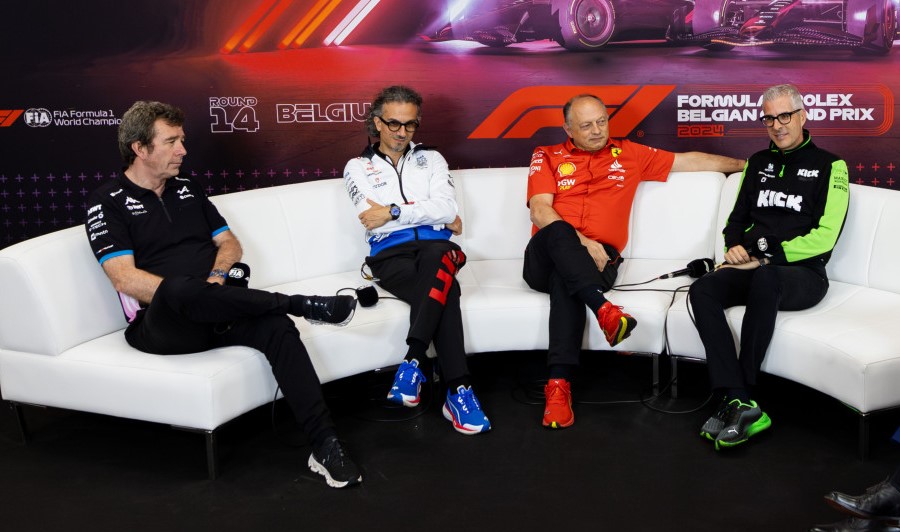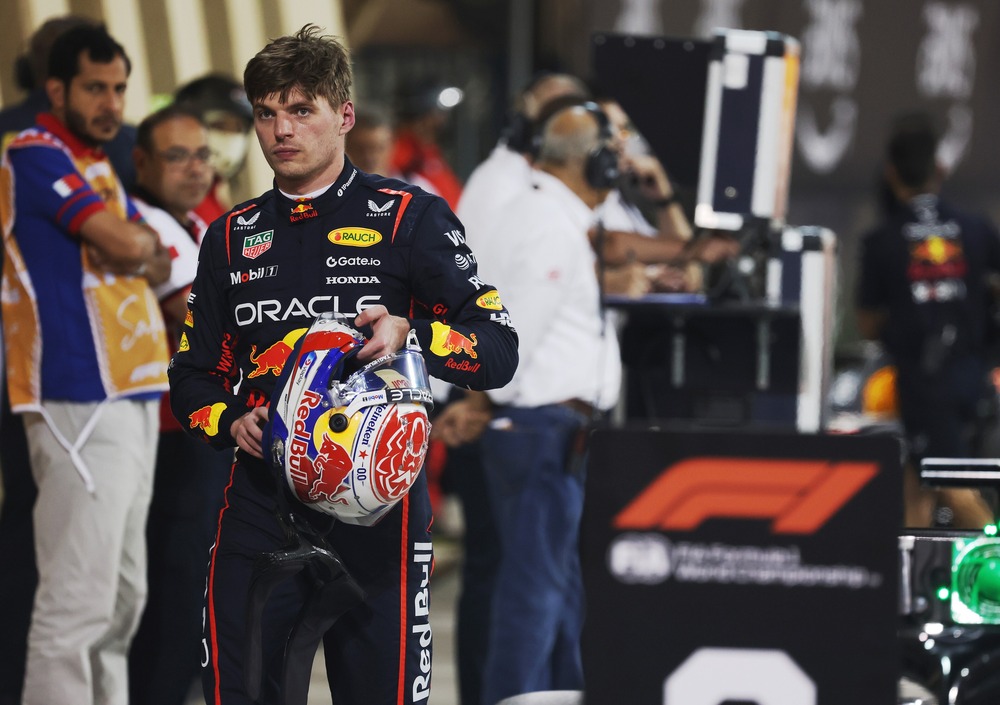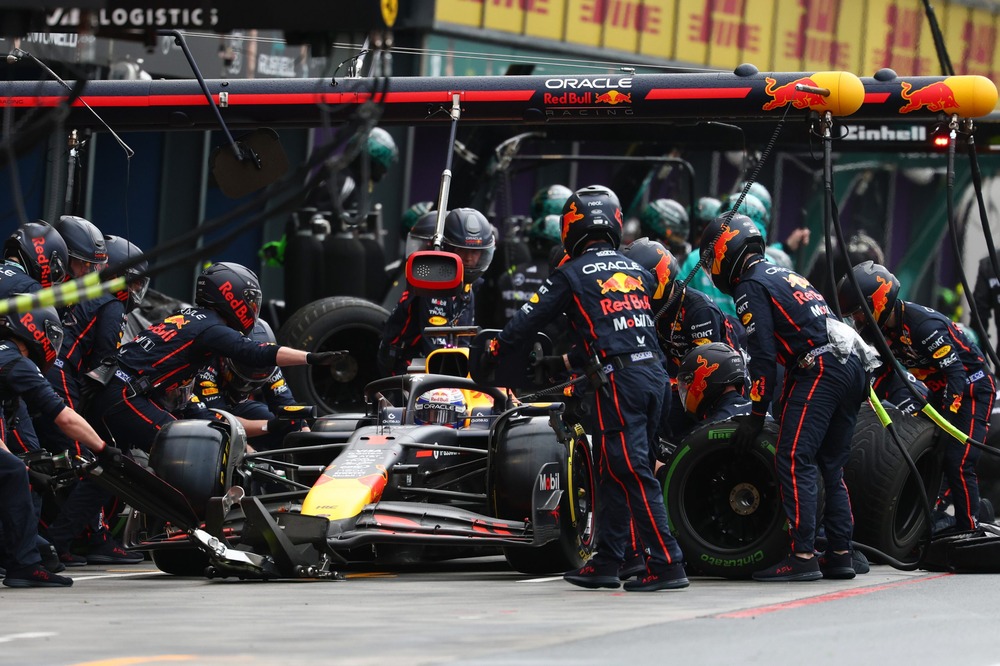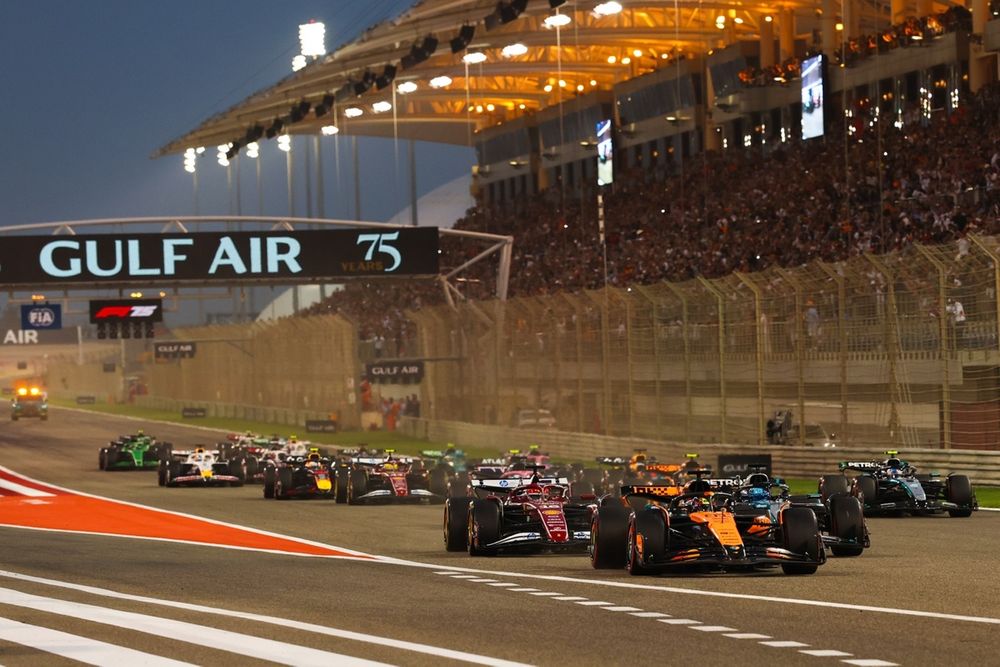RB team boss Laurent Mekies says Alpine’s decision to withdraw its engine program for 2026 F1 is “bad news” for the sport.
Visa Cash App RB team principal Laurent Mekies has voiced his concerns regarding Alpine’s decision to withdraw from its engine program for the 2026 Formula 1 season.
The move has raised alarms about the implications for the sport’s competitive landscape, with Mekies labeling it as “bad news” and stating that the absence of a key player like Alpine could have far-reaching effects on competition, innovation, and the overall progress of the series.
The Renault-owned team, has been a key player in Formula 1, especially with its recent investments in technology and performance. However, the brand intends to focus solely on the Alpine car brand and has initiated discussions with Mercedes for technical partnership in F1.
Their decision to exit the engine program comes at a time when the sport is gearing up for a major regulation changes for 2026 F1, which aims to enhance sustainability and performance through hybrid power units.
With this, the involvement of multiple manufacturers is crucial as the new regulations are designed to attract more manufacturers to the grid, fostering a competitive environment that benefits teams and fans alike.
However, the Enstone outfit is set to shut down its engine operation meaning that there will be five OEMs instead of the original six (Mercedes, Ferrari, Honda, Audi, and Red Bull) in 2026, and Mekies thinks this will be bad for the sport.
“I think it’s always a bad news when you lose an OEM,” he said. “And of course, from what Bruno is saying, the OEM will stay as a team, but obviously, one of the big targets of these new regulations in 2026 was to attract more OEMs.
“So ultimately, if it goes as Bruno said, it means that we’ll get plus one with Audi and minus one with Alpine. So I don’t think it’s good news. However, it comes, luckily, at a time where there is many manufacturers in Formula 1.
“So I would say that the sport can well afford this change. But it’s never a good news when we lose a PU manufacturer.”
The withdrawal of Alpine diminishes the diversity of engine suppliers, which is crucial for the competitive balance in Formula 1. With fewer manufacturers, the risk of a few teams monopolizing the championship increases, potentially leading to a less exciting and more predictable series.
The unpredictability of races is one of the key elements that keeps fans engaged, and any move that threatens this dynamic is a cause for concern.
However, according to Sauber boss Alessandro Alunni Bravi, the move made by Alpine and the larger Renault Group is not directly related to the upcoming 2026 F1 power unit regulations shake-up, which has allowed Audi to acquire Sauber and get entry into the sport.
“It seems that this is a decision that is not linked, of course, to the new PU regulation or to the trajectory that Formula 1 is taking towards 2026,” Bravi said.
“I think that the PU regulations are very attractive for new manufacturers and of course Audi is the perfect example that thanks to this new regulation there is an interest from the automotive, you know, to be in Formula 1 because it’s the pillar of the technology and the best, you know, testing bench for the future mobility technical solutions.”
Red Bull Team boss Christian Horner is familiar with the outgoing manufacturer’s output, which propelled his team to its first four world titles between 2010 and 2013, before their relationship faltered during the hybrid era.
“It’s always sad to see an engine manufacturer go,” he said. “Viry has been involved in Formula 1 for many, many years. I understand they have other projects that they are involved in.
“They supplied engines to us for many years, so we know quite a lot of the people there and wish them well for the future.”
Meanwhile, Ferrari Team Principal Fred Vasseur also offered sympathy to the dedicated Alpine employees.
“I’m more focused on the people of Renault,” he said. “I know very well the company that I spent years with them. I started my career in 1992 with Renault and I’m profoundly attached to Renault and I think it’s a shame.”
The arrival of new manufacturers could help fill the void left by Alpine, but it also underscores the need for existing teams to adapt to changing dynamics. The competition for technological supremacy is fierce, and teams must innovate to stay relevant.






